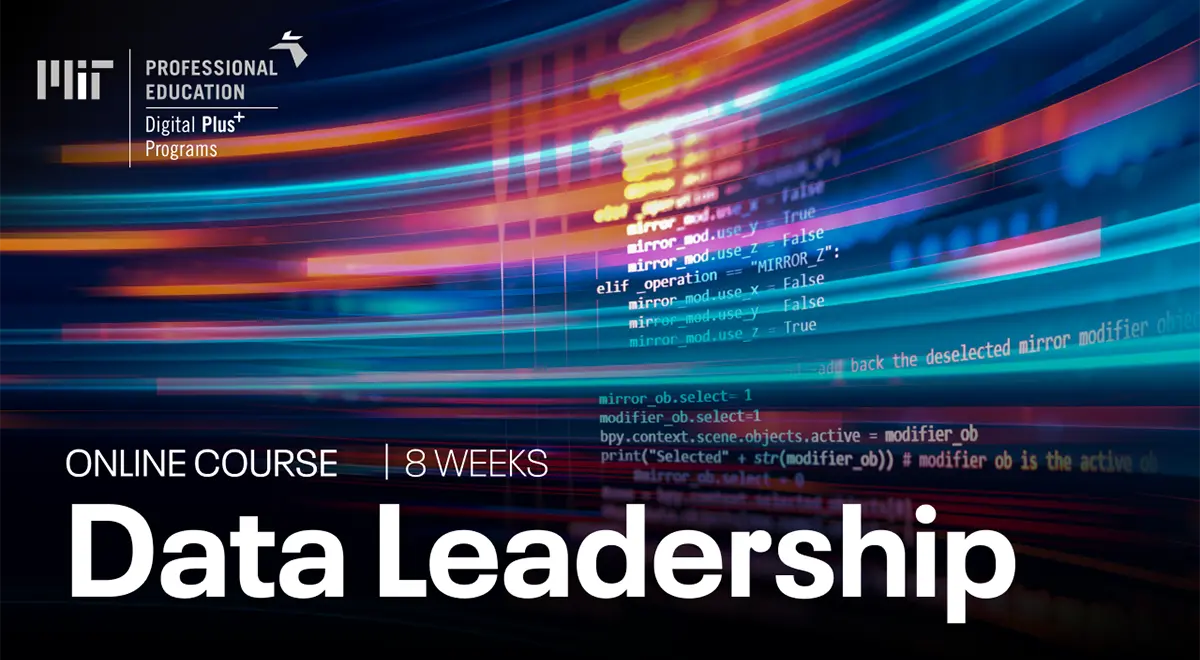Data Leadership
Transforming the Corporation’s Operations, Management and Mindset to Leverage Data, AI and Cloud Computing
English
The Worldwide Importance of Data Leadership
We are in a world where the new technologies of Cloud, IoT, AI/Machine Learning, and Cloud Data-Stacks are re-architecting how organizations operate. DevOps and DataOps driven organizations move thousands of times faster than others.
To master this “Tsunami” of data we need to leverage new tools and new data analysis techniques. We need to master the new Cloud datastores where we can query petabytes of data in seconds.
We need to understand how to leverage the new data-in-motion pipelines to make business decisions in seconds rather than days or weeks.
38% vs 9%
Thirty-eight percent of CEOs say they lead their companies’ analytics agendas, but only 9 percent of all other C-suite executives agree.
Source: McKinsey
60%
of corporate data is stored in the cloud.
Source: Statista
20%
more of an increase in revenue before taxes was achieved by data-analytic firms than by non-data analytic firms.
Source: McKinsey & Company
An Online Program Offering a Profound Approach to Data Leadership
MIT Professional Education’s online program in Data Leadership cohesively consolidates the objectives of making relevant data accessible to decision-makers at every level of the organization. Effective business leaders rely on accurate consumer and market forecasting to rapidly adapt to dynamic conditions.
This program offers a fully encompassing approach, featuring the pillars of effective data leadership, case studies, and initiatives.
The skills you will develop
1.
Comprehend the history and role of data and the cloud from its beginnings to now
2.
Understand what data platforms are, how they work, and their uses to take advantage of the data that your organization manages
3.
Master AI applications to leverage organizations’ data infrastructures
4.
Master the SQL application, data governance, and cybersecurity
5.
Leverage existing company data for success and derive value from dormant data for precise decision-making based on data
6.
Understand the cloud, machine learning, Lean DevOps, and data store
technologies for organizational advancement
In addition, you will receive a Certificate of Completion
All participants who successfully complete the program will receive an MIT Professional Education Certificate of Completion.
Students in the MIT Professional Education Digital Plus Data Leadership program will also receive 6.4 Continuing Education Units (CEUs).
To obtain CEUs, complete the accreditation confirmation, which is available at the end of the course. CEUs are calculated for each course based on the number of learning hours.
* The Continuing Education Unit (CEU) is defined as 10 contact hours of ongoing learning to indicate the amount of time they have devoted to a non-credit/non-degree professional development program.
To understand whether or not these CEUs may be applied toward professional certification, licensing requirements, or other required training or continuing education hours, please consult your training department or licensing authority directly.
This course is directed to:
- MANAGEMENT-LEVEL PROFESSIONALS AND EXECUTIVES
looking to champion a data-driven approach in their organizations to be able to make informed decisions.
- PROFESSIONALS AND EXECUTIVES IN DATA MANAGEMENT ROLES:
Chief of Data Analytics, Chief of Data, Chief of Machine Learning.
- MORE ESTABLISHED ORGANIZATIONS AS WELL AS YOUNGER START-UPS
seeking to improve data management and processing.
- ORGANIZATIONS WITH A MEDIUM TO HIGH NUMBER OF DATABASES
and medium-high data volumes that need to integrate and connect their sources with their databases to better leverage their use.
- OTHER ROLES WITH SIGNIFICANT RESPONSIBILITY
wanting to improve their data analytics and optimize their utilization.
- ORGANIZATIONS THAT OPERATE WITH LEGACY SYSTEMS,
such as SAP, need to update their data structure.
There are a few prerequisites to enroll in this course:
- Basic knowledge of coding is recommended, but not obligatory
- It is recommended that participants speak the same language as those with more technical roles on their teams (IT teams, data scientists, etc.) and be able to identify potential blockers
Meet the instructors of this course
*Listed in alphabetical order
DR. ABEL SANCHEZ
Executive Director of the MIT Geospatial Data Center

“We use the term ‘applied’ because we recognize this as a business problem, but we also wanted to ground the technology and give people fundamentals.”
Learn more
Dr. Abel Sanchez holds a Ph.D. from the Massachusetts Institute of Technology (MIT). He is the Executive Director of MIT’s Geospatial Data Center, architect of “The Internet of Things” global network, and architect of data analytics platforms for SAP, Ford, Johnson & Johnson, Accenture, Shell, Exxon Mobil, and Altria.
In cyber security, Dr. Sanchez architected impact analysis of large-scale cyber-attacks designing Cyber Ranges for the Department of Defense (DOD). In password security, Dr. Sanchez led the design of a password firewall (negative authentication) for the Intelligence Advanced Research Projects Activity (IARPA) agency. In machine learning, addressing fraud detection,
Dr. Sanchez designed a situational awareness framework that exploits different perspectives of the same data and assigns risk scores to entities for Accenture. He led the design of a global data infrastructure simulator, modeling follow-the-sun engineering, to evaluate the impact of competing architectures on the performance, availability, and reliability of the system for Ford Motor Company.
Dr. Sanchez led e-Education software for Microsoft via their I-Campus Program and was faculty co-founder of the Accenture Technology Academy, an online resource for over 200,000 employees. He teaches MIT courses on cybersecurity, engineering computation, and data science and has produced over 1000 educational videos. Learners from 45 different countries have taken Abel’s courses.
PROF. JOHN R. WILLIAMS
Director of the MIT Geospatial Data Center

“Data Engineering builds the corporate nervous system.”
Learn more
John Williams holds a BA in Physics from Oxford University, an MS in Physics from UCLA, and a Ph.D. in Numerical Methods from the University of Wales, Swansea. His research focuses on the application of large-scale computation to problems in cyber-physical security and energy. He is director of MIT’s Geospatial Data Center and from 2006-2012, was Director of the MIT Auto-ID Laboratory, where the Internet of Things was invented. He is the author or co-author of over 250 journal and conference papers, as well as books on Rock Mechanics and RFID Technology. He contributed to the 2013 report for the UK Office for Science Foresight Project- The Future of Manufacturing. Alongside Bill Gates and Larry Ellison, he was named as one of the 50 most powerful people in Computer Networks. He consults with companies including Accenture, Schlumberger, Shell, Total, Exxon, SAP Research, Microsoft Research, Kajima Corp, US Lincoln Laboratory, Sandia National Laboratories, US Intelligence Advanced Research Projects Activity, Motorola, Phillip-Morris Inc., Ford Motor Company, ExxonMobil, Shell, Total, and ARAMCO. His international collaborations include Oxford and Cambridge Universities, HKUST, KACST, Alfaisal University, PolyU Hong Kong, Imperial College of Science and Technology UK, Malaysia University of Science and Technology (MUST), and Masdar Institute of Science and Technology Abu Dhabi. He organized the first Cyber-Physical Security Conference in the UK (2011) and along with Dr. Sanchez, he runs the MIT Applied Cyber Security Professional Education summer course. At MIT he teaches courses Architecting Software Systems (MIT 1.125) and Engineering Computation and Data Science (MIT 1.00/1.001). .
In data engineering and data science, early work included simulation of Ford’s global network, analysis of SAP smart grid billing system. For Altria, he analyzed the performance of item level tagging and their implementation of an anti-counterfeiting system using the Electronic Product Code (EPC)
In password security, Dr. Williams was PI that developed the algorithms for a negative password authentication system for the Intelligence Advanced Research Projects Activity (IARPA) agency. .
Dr. Williams advises companies in the Americas, Europe, Middle East, and Asia.



